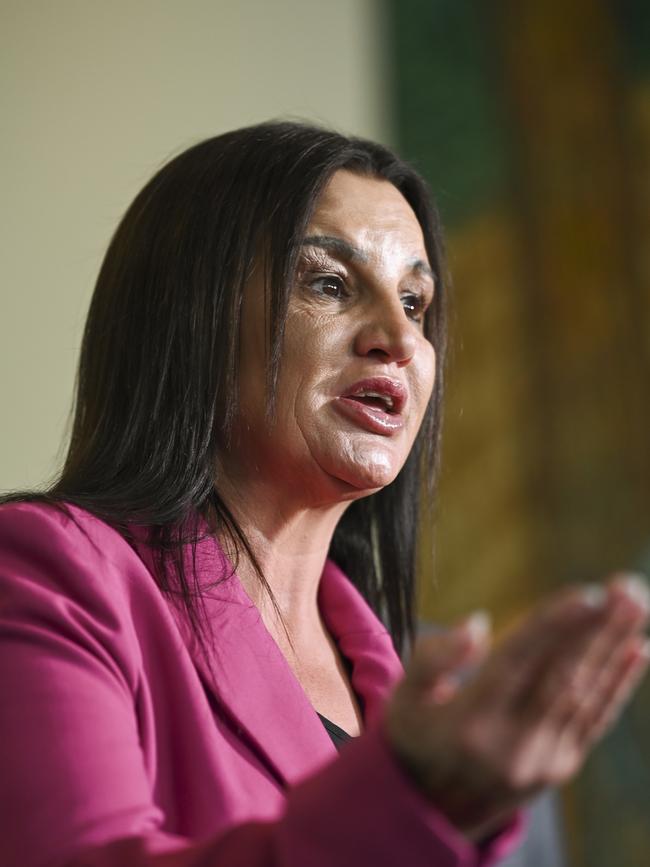Tasmania election: Polling shows collapse in major party vote
Exclusive polling reveals just how many seats the major parties would get in Saturday’s state election. See the results >>
Tasmania
Don't miss out on the headlines from Tasmania. Followed categories will be added to My News.
The major parties are facing a collapse in their primary vote at Saturday’s state election – with the Jacqui Lambie Network and independents appearing to be the main beneficiaries.
Seat-by-seat polling conducted Freshwater Strategy a fortnight ago, obtained by the Mercury, shows the Liberals on track to win the most seats, but not enough to govern in majority.
Premier Jeremy Rockliff on Thursday claimed: “We’re within a whisker away, according to the polls, of achieving majority government.”
The pollster estimates that the Liberals could win 15 seats in the 35-seat House of Assembly; Labor nine; the Greens four; the Jacqui Lambie Network three; and there could be four independents elected.

The polling asked 800 voters in each of the five seats where they were going to allocate their number one preference vote.
If the polling holds true, the swing against the government would be strongest in Lyons, where 38 per cent of those surveyed said they were intending to vote Liberal, down from the 51 per cent recorded at the 2021 election.
Labor’s Lyons vote would fall from 32 per cent to 23 per cent if the polling held true, the Greens would rise four percentage points to 13 per cent; and Lambie and independent candidates would be on track to receive 11 per cent of the primary vote each.
High-profile former Liberal John Tucker is one of six candidates campaigning in the seat as an independent. Green Tabatha Badger is the party’s lead candidate in the Lyons.
In Bass, with the absence of former Premier Peter Gutwein on the ballot, the Liberals recorded the support of 40 per cent of those surveyed, down from the 60 per cent at the last election.

Labor recorded the support of 26 per cent of respondents, which would be unchanged from the 2021 election if repeated on election day.
The Greens were the first choice of 10 per cent of respondents and the Lambie Network also recorded 10 per cent, putting both in strong contention for a seat.
In Braddon, the Liberals recorded 49 per cent support in the poll, down from 57 per cent in 2021, while Labor dropped from 27 per cent to just 15 per cent.
Support for the Lambie Network was at its highest level Braddon, at 13 per cent, while independents were at 10 per cent.
The drift away from the major parties is less pronounced in the southern seats.
In Clark, Liberal candidates are tipped to take 26 per cent of the primary vote, down from 32 per cent; Labor 21 per cent, down from 22 per cent; and the Greens hold steady on 20 per cent.
Independents recorded the support of 28 per cent of those polled, leading to the possibility of two being elected. Seven are in the mix, including incumbent Kristie Johnston and former Liberal Sue Hickey.
And in Franklin, the Liberals were the first choice of 33 per cent of those polled, down from 42 per cent; Labor was at 27 per cent, down from 33 per cent; the Greens at 13 per cent, down six points. Independent candidates were attracting 17 per cent support.
A first preference count that low could spell trouble for sitting Liberal members Nic Street and Dean Young who are sharing the ticket with high-profile candidates Eric Abetz and Jacquie Petrusma.
Former Labor MP David O’Byrne is one of six candidates running as independents in Franklin.





